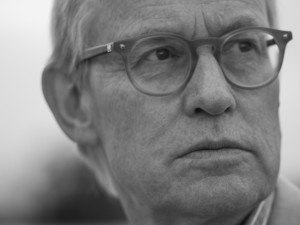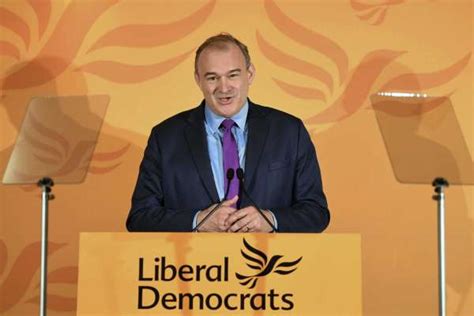01 October 2020
The Liberal Democrat Phoenix
Remains moribund… for now.
By Richard Pooley

After three weeks on my own, putting order back into the house and garden my wife and I have in south-west France, today is day 9 of my 14-day quarantine back in the UK. I was célibataire there and Madame has insisted I am here too. I have no reason to complain. Self-isolation for a semi-retired Brit with a house and small garden in one of Britain’s more beautiful cities during these mostly blue-sky autumnal days is no penance.
I even got the call. Not that I knew I had at first. On day 2, someone called me on my mobile from an unknown number. I ignored it. On day 3, my mobile rang and I picked it up without looking at who was calling. It was someone from… well, actually, I don’t know what or where. Health was the one word I picked up in the gabble. Was I self-isolating? Yes, I said. He read, at speed and in a monotone, the rules of quarantining. Any questions? Yes, I said, How often do you have to read that out? Laughter. Whenever I get hold of anyone. That didn’t happen very often. No wonder. I have been asking since the beginning of the launch of the UK’s “world-beating” Track and Trace system why it has mostly relied on people accepting calls from an unknown number. Don’t its designers and our masters realise that most of us low-lifes – aka The People – ignore calls from unknown numbers? Well, dear British self-isolating reader, if your phone says it’s a call from 0300 123 2008, don’t ignore it. Take the call. You will make a lonely call centre worker very happy. And you will be doing your civic duty.
So, how to fill my quarantined days? With a virtual political party conference, of course. I have been a Liberal/Alliance/Liberal Democrat Party member all my adult days. I have canvassed at general and by-elections, attended local party gatherings and even once stood to become a councillor. But I had never attended a Party Conference. Until last week. Perhaps it passed you by but we Lib Dems spent last Friday to this Monday communing with each other. Up to two thousand of us at any one time. Unlike the Tories, whose online conference starts this Saturday and is free to party members, we Lib Dems had to pay £40 each. Needs must; we have no well-laundered Russian donors.
Curiosity was my driver. I have long experience of face-to-face, body-to-undistanced body business conferences as exhibitor, trainer, audience member and speaker. But what was an online version like? Could this be a better way? And what actually goes on at a party political conference? Are my fellow activists in Scotland, Wales and northern England motivated by the same issues as I am down here in the English south-west? Have those same activists accepted what the party high-ups have told them are the reasons for the party’s dire performance in the past three UK General Elections? Have they, as our new leader Ed Davey keeps telling us, woken up and smelled the coffee? Would Ed give us a better and less tired metaphor in his first conference speech as leader? Is there a plan for making ourselves relevant again? How will we differentiate ourselves from the other parties in future?
Too many questions to answer fully in one article. So here are the short answers to most of them:
Are activists in Scotland, Wales and northern England motivated by the same issues as their colleagues are down here in the south-west? Yes. But at a local level rather than a national one.
Have those same activists accepted what the party high-ups have told them are the reasons for the party’s dire performance in the past three UK General Elections? No. Most are still banging on about issues which matter to them but not to your average John or Joanna – reforming the voting system, abolishing the House of Lords (even though that is the only place nationally that the Lib Dems have any power), promoting and adding more letters to LGBTQ rights. Many accuse Ed of “treachery” for not making it party policy to rejoin the EU. How we get out of the economic mess we are now in and what a Lib Dem chancellor (don’t laugh) might propose in their first budget are not questions I heard asked. I was impressed by a few of the would-be MPs I came across (people of Sheffield Hallam, please vote for Laura Gordon next time). But no reborn David Lloyd George or William Beveridge did I spot in the party of the phoenix.
If you want to know what I thought of our general election performance, read what I wrote immediately after it – Whither the Withered.
Would Ed find a better and less cliched metaphor than waking up and smelling the coffee in his first conference speech as leader? No. He repeated it. And he told us to “Listen to the British people”. Several times. He told the same story – about Anne and Bob and their Fish and Chip shop in Stockport – at least twice during the conference without telling us the point of it. He was best when telling his personal story, as a teenage carer of his mother dying of bone cancer and as a father of a severely-disabled boy. Several listeners wrote in the Chat column, scrolling alongside as he was speaking, that they were in tears. His pitch to “the nine million carers” of Britain – “I’ll be your voice… I understand what you’re going through” – was the message which got airtime on Sky News and the BBC. Ed had admitted in a Q & A session on Saturday that his earnestness and energy had earned him the nickname Tigger. More revealing was the nickname that he thought his political enemies dubbed him – Cockroach. I voted in the Leadership election for Layla Moran, the pansexual former maths and physics teacher who is now MP for Oxford West and Abingdon. I am not yet convinced I was wrong to do so.
Is there a plan for making ourselves relevant again? If there is, Ed did not tell us what it was. But he did say where we must concentrate our efforts, time and tiny resources: on winning as many seats as possible in the election to the Scottish Parliament next May. The Conservatives are no longer the Unionist party and Johnson is a vote-loser north of the border. Labour remain spavined in Scotland. The Lib Dems have a strong base in rural and small town Scotland and could well be a (temporary) home for those opposed to Scottish independence.
Away from politics, what was it like attending an online conference? Overall and against all my instincts, I think it is a better way of running such events. If the aim of such gatherings is for people to sell products or services, to communicate new ideas or new findings and to learn as much as possible, this format is way better than the usual non-virtual jolly. It’s much more efficient.
I could switch immediately and at any moment from a speech in the auditorium to a training course to an exhibitor video and back again without having to move an inch, disturb anyone else or book my place. I watched part of a course in the online company of hundreds of others, something which would have been impossible if we had all been physically together. I could listen to and watch a debate, with people speaking from their homes around the country, and at the same time read and contribute to the written debate going on in the fast-flowing Chat column which ran alongside the video on my screen. It was almost impossible to read all the comments in Chat, so fast was it scrolling, but it gave me (and the moderator running the debate) an idea of what points made by the speakers were being supported or contested. It was like sitting in an audience at a play and hearing the reactions to it from all those around me. Disturbing but enlightening. And if I wanted to concentrate entirely on what the speaker was saying, all I had to do was swipe the Chat column aside. No distracting cough, sneeze or fart from those around me.
I could find and contact anyone attending the conference in an instant. But no one was obliged to respond. As the Japanese say, sometimes silence is a loud message.
There are drawbacks. Serendipitous meetings which lead to contracts either of a business or of a personal nature are much more likely to happen when people are in the same place. Networking is harder when not aided by introductions and not fuelled by alcohol and food.
Back to the politics. The question I most wanted answered by my fellow Liberal Democrats was how we can differentiate ourselves from the other parties. For me the answer has been obvious long before Covid-19 came along and showed it to be so. Decisions which affect our lives (and deaths) most must be made not in Brussels (done), nor in Parliament and Whitehall, nor, above all, by a tiny cabal of politicians and unelected advisers in 10 Downing Street. Local Government must be given the power, resources and respect it once had to govern the UK competently and effectively once more. The Conservative and Labour Parties are both centralisers. The Liberal Democrats should be fighting for localism, for decentralised decision-making, for local democracy. Will we?


